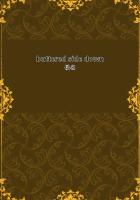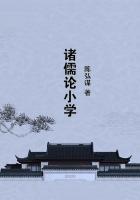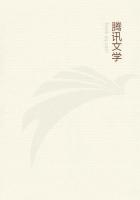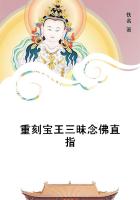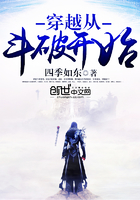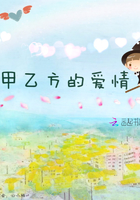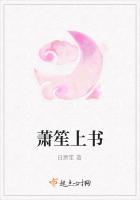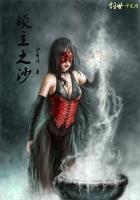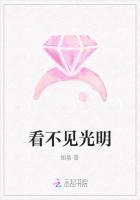"O Tu, falsehood is so easy and truth so difficult sometimes. But I feel that I have been very, very wicked," said poor Jasmine, covering her face with her hands.
"Well, you certainly have got yourself into a pretty hobble. So far as I can make out, you are at the present moment engaged to one young lady and two young men."
The situation, thus expressed, was so comical that Jasmine could not refrain from laughing through her tears; but, after a somewhat lengthened consultation with her lover, her face recovered its wonted serenity, and round it hovered a halo of happiness which added light and beauty to every feature. There is something particularly entrancing in receiving the first confidences of a pure and loving soul. So Tu thought on this occasion, and while Jasmine was pouring the most secret workings of her inmost being into his ear, those lines of the poet of the Sung dynasty came irresistibly into his mind:
'T is sweet to see the flowers woo the sun, To watch the quaint wiles of the cooing dove, But sweeter far to hear the dulcet tones Of her one loves confessing her great love.
But there is an end to everything, even to the "Confucian Analects," and so there was also to this lovers' colloquy. For just as Jasmine was explaining, for the twentieth time, the origin and basis of her love for Tu, a waiter entered to announce the arrival of her luggage.
"I don't know quite," said Tu, "where we are to put your two men. But, by-the-bye," he added, as the thought struck him, "did you really travel all the way in the company of these two men only?"
"O Tu," said Jasmine, laughing, "I have something else to confess to you."
"What! another lover?" said Tu, affecting horror and surprise.
"No; not another lover, but another woman. The short, stout one is a woman, and came as my maid. She is the wife of 'The Dragon.' "
"Well, now have you told me all? For I am getting so confused about the people you have transformed from women to men, that I shall have doubts about my own *** next."
"Yes, Tu, dear; now you know all," said Jasmine, laughing. But not all the good news which was in store for him, for scarcely had Jasmine done speaking when a letter arrived from his friend in the Board of War, who wrote to say that he had succeeded in getting the military intendant of Mienchu transferred to a post in the province of Kwangsi, and that the departure of this noxious official would mean the release of the colonel, as he alone was the colonel's accuser. This news added one more chord of joy which had been ****** harmony in Jasmine's heart for some hours, and readily she agreed with Tu that they should set off homeward on the following morning.
With no such adventure as that which had attended Jasmine's journey to the capital, they reached Mienchu, and, to their delight, were received by the colonel in his own yamun. After congratulating him on his release, which Jasmine took care he should understand was due entirely to Tu's exertions, she gave him a full account of her various experiences on the road and at the capital.
"It is like a story out of a book of marvels," said her father, "and even now you have not exhausted all the necessary explanations. For, since my release, your friend Wei has been here to ask for my daughter in marriage. From some questions I put to him, he is evidently unaware that you are my only daughter, and I therefore put him off and told him to wait until you returned. He is in a very impatient state, and, no doubt, will be over shortly."
Nor was the colonel wrong, for almost immediately Wei was announced, who, after expressing the genuine pleasure he felt at seeing Jasmine again, began at once on the subject which filled his mind.
"I am so glad," he said, "to have this opportunity of asking you to explain matters. At present I am completely nonplussed. On my return from Peking I inquired of one of your father's servants about his daughter. 'He has not got one,' quoth the man. I went to another, and he said, 'You mean the "young noble," I suppose.' 'No, I don't,' I said; 'I mean his sister.' 'Well, that is the only daughter I know of,' said he. Then I went to your father, and all I could get out of him was, 'Wait until the "young noble" comes home.' Please tell me what all this means."
"Your great desire is to marry a beautiful and accomplished girl, is it not?" said Jasmine.
"That certainly is my wish," said Wei.
"Well then," said Jasmine, "I can assure you that your betrothal present is in the hand of such a one, and a girl whom to look at is to love."
"That may be," said Wei, "But my wish is to marry your sister."
"Will you go and talk to Tu about it?" said Jasmine, who felt that the subject was becoming too difficult for her, and whose confidence in Tu's wisdom was unbounded, "and he will explain it all to you."
Even Tu, however, found it somewhat difficult to explain Jasmine's sphinx-like mysteries, and on certain points Wei showed a disposition to be anything but satisfied. Jasmine's engagement to Tu implied his rejection, and he was disposed to be splenetic and disagreeable about it. His pride was touched, and in his irritation he was inclined to impute treachery to his friend and deceit to Jasmine. To the first charge Tu had a ready answer, but the second was all the more annoying because there was some truth in it. However, Tu was not in the humour to quarrel, and being determined to seek peace and ensue it, he overlooked Wei's innuendos and made out the best case he could for his bride. On Miss King's beauty, virtues, and ability he enlarged with a wealth of diction and power of imagination which astonished himself, and Jasmine also, to whom he afterward repeated the conversation.
"Why, Tu, dear," said that artless maiden, "how can you know all this about Miss King? You have never seen her, and I am sure I never told you half of all this."
"Don't ask questions," said the enraptured Tu. "Let it be enough for you to know that Wei is as eager for the possession of Miss King as he was for your sister, and that he has promised to be my best man at our wedding to-morrow."

